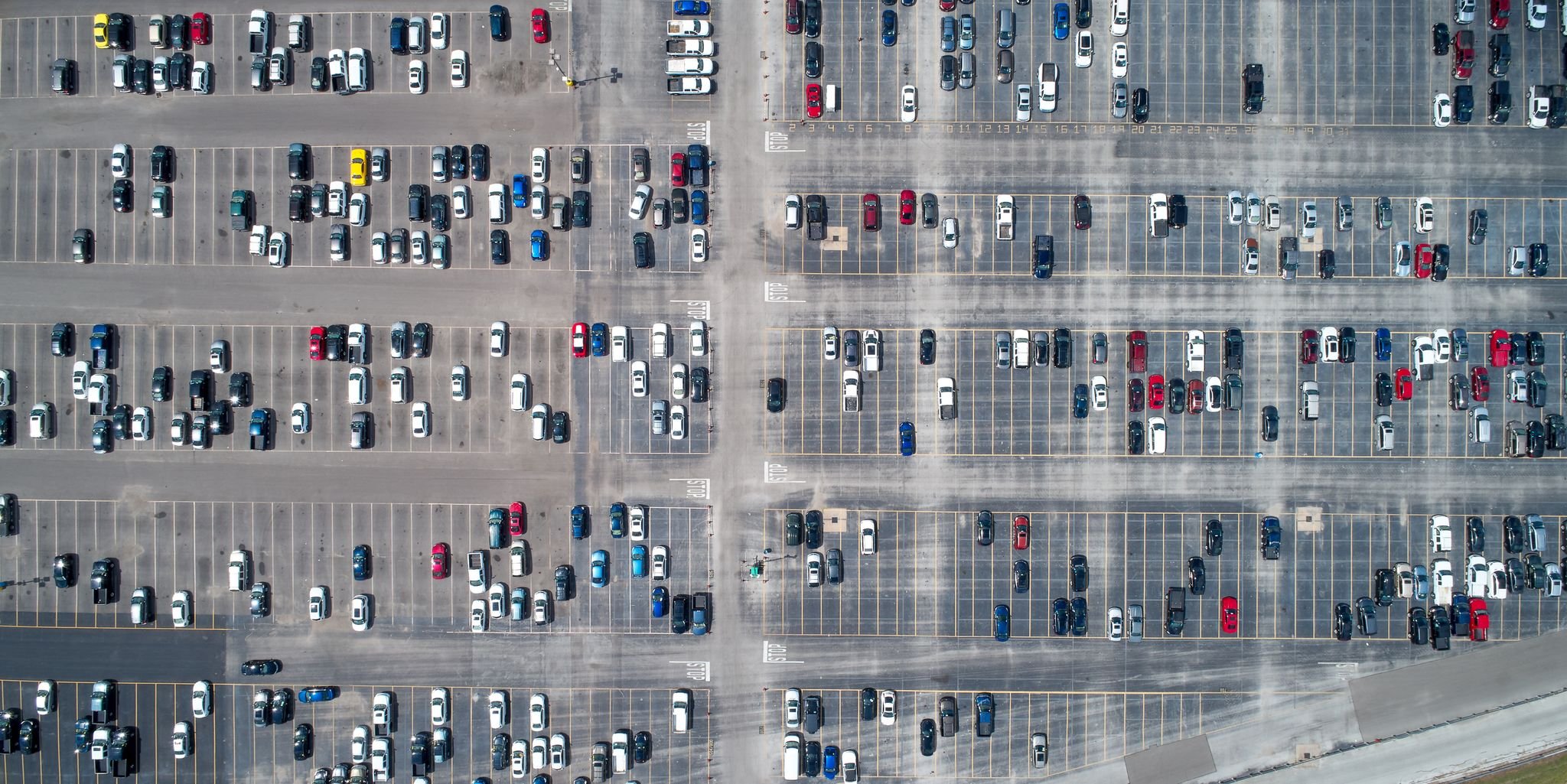Houston Is Going Broke One Parking Lot at a Time
Houston Parking lot (Photo by: Leonid Furmansky)
Houston is facing a fiscal crisis. The city’s FY2025 general fund budget reveals a deep imbalance: while projected revenues total $2.3 billion, expenditures are expected to hit $3 billion. This isn’t just a budgeting issue — it’s a land use problem. Most of Houston’s land simply isn’t pulling its weight.
According to recent figures, Houston collects:
$1.4 billion from property taxes
$893.4 million from sales taxes
Just $12.6 million from other sources
🧾 Total revenue: ~$2.306 billion
🧾 Total expenditure: ~$3 billion
That leaves nearly $700 million in unfunded needs — for basic services like streets, parks, water, flood control, libraries, drainage, and emergency response.
The Strong Towns Diagnosis: Unproductive Land
As Strong Towns founder Chuck Marohn has said: “The problem isn’t how much we tax — it’s how unproductive our places are.”
In Houston, the problem isn’t zoning — it’s piecemeal, exclusionary deed restrictions that function like zoning without accountability. These private rules limit what can be built in large swaths of the city, often:
Prohibiting apartments or duplexes in neighborhoods near transit or employment
Restricting commercial uses, which limits walkability and economic dynamism
Locking in low-density patterns, even when demand and infrastructure support more
Combine this with large stretches of:
Empty lots held for speculation
Surface parking that generates little tax revenue
...and we’re left with land that absorbs infrastructure costs without returning value to the public.
Today’s Revenue Mix: Too Much on Property, Too Little on Sales
Here’s how Houston’s general fund revenues break down:
Houston General Fund Revenue
That means our budget is heavily dependent on property value assessments, which places an increasing burden on homeowners — even when their incomes don’t rise with their property valuations.
What If We Grew Revenue Through Productivity?
Let’s imagine a Houston where we built more walkable, mixed-use neighborhoods that attract foot traffic, generate business activity, and expand our local economy. If that increased sales tax revenue by just 30%, our new budget mix might look like this:
Future Revenue Mix with Walkable Growth
This shift would ease the pressure on property owners while growing a more dynamic, inclusive economy.
The Policy Fixes: Tools for a Stronger, Fairer City
To make this transformation real, Houston needs to update its tax tools to match its values. Two key proposals stand out:
1. Land Value Return (LVR)
A land value return shifts the burden from buildings to the value of land itself — encouraging development while discouraging speculation. Under this model:
Vacant land pays more, making hoarding less attractive
Adding buildings or housing doesn’t increase your tax bill
Homeowners and small businesses pay less, while unproductive land pays more
Use-Based Assessment Reform paired with this policy would make sure that the properties with the most potential for development are utilized now rather than sitting idle for 10+ years by speculators.
This creates a built-in incentive to do something with land — build housing, create businesses, or sell to someone who will.
Downtown Houston surface parking spaces (Source: Parking Reform Network)
2. Vacancy Tax
Houston has thousands of homes and apartments that sit empty — often as long-term investments or poorly regulated short-term rentals. The average vacancy rate in Houston is 10.40% (according to data from best neighborhoods aggregation[1]).
A vacancy tax would:
Discourage long-term vacancies
Bring housing units back onto the market
Raise funds for affordable housing and code enforcement
Increase local economic activity, via more residents and purchasing
Cities like Vancouver and Washington, D.C. are already using this tool with positive results. It’s time Houston caught up.
Lower Burdens, Better Services
Together, these tax reforms could:
Lower the tax burden on working homeowners and productive businesses
Encourage more compact, more productive development
Bring in new revenue while contending with the states pre-emption on raising property taxes
Fund better services — streets, libraries, trash pickup, drainage, transit — without painful cuts to service.
Instead of squeezing more from those already contributing, we need to make it easier — and cheaper — to build the kind of Houston that works for everyone.
What's Next?
We need:
A parcel-level analysis of city land: What is productive? What isn’t?
A modeling study of LVR and vacancy taxes under different scenarios
Public engagement to show residents and homeowners how their own taxes would go down and services would improve
This isn’t about punishment — it’s about sustainability. If we want better streets, lower housing costs, and a more resilient city budget, we must stop subsidizing empty lots and start rewarding productive use.
References
Houston 2025 General Fund Budget Overview (Houston Chronicle)
Mayor Whitmire unveils $7B balanced budget (Chron.com)
Where do your Houston taxes go? (Houston Chronicle)
Strong Towns Land Value Tax (Strong Towns)


